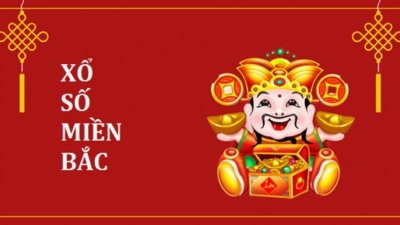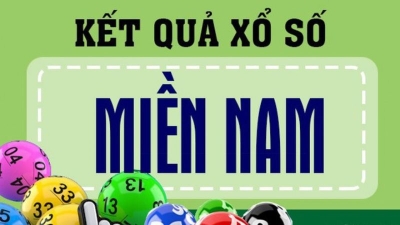Top 10 nhà cái tặng tiền thật chơi xóc đĩa online, truy cập nhanh
Top 10 nhà cái tặng tiền uy tín nhất hiện nay: Vsbet, 6686, shbet, kubet, sodo, sv66, bk8, m88, vi88, ee88... Khuyến mãi 88k chơi xóc đĩa online, hoàn cược thể thao lên đến 80%
Trong thế giới cá cược trực tuyến ngày càng phát triển, việc lựa chọn nhà cái phù hợp là rất quan trọng. Top 10 nhà cái tặng tiền dưới đây không chỉ mang đến những ưu đãi hấp dẫn mà còn tạo cơ hội tuyệt vời để tăng cường trải nghiệm cá cược của bạn. Hãy cùng tìm hiểu để chọn cho mình một địa chỉ uy tín và đáng tin cậy, giúp bạn tối ưu hóa lợi ích khi tham gia cá cược.
Top 10+ nhà cái tặng tiền được ưa chuộng nhất hiện nay
|
Nhà cái |
Những điểm mạnh làm nên sự uy tín của sân chơi cá cược này |
|
1 |
Vsbet - Sân chơi cá cược bóng đá uy tín, khuyến mãi 80%✅Vsbet là nhà cái uy tín, với link truy cập ổn định, cung cấp nền tảng cá cược an toàn, đáp ứng đầy đủ nhu cầu giải trí của cược thủ trên nhiều lĩnh vực. ✅Nhà cái hỗ trợ cược thủ 50k bắt đầu hành trình cá cược với các ưu đãi hấp dẫn, giúp gia tăng trải nghiệm và vốn cược hiệu quả. ✅Nằm trong top 10 casino online, nhà cái tặng tiền Vsbet sở hữu hệ thống trò chơi đa dạng, bao gồm game bài, slots và sòng bài trực tiếp, mang lại những phút giây giải trí đỉnh cao. ✅Tỷ lệ cá cược bóng đá hôm nay luôn được cập nhật và cạnh tranh, tạo điều kiện cho cược thủ tối ưu hóa lợi nhuận với các kèo cược hấp dẫn. |
|
2 |
6686 - Nhà cái tặng tiền thưởng hấp dẫn số 1 Việt Nam✅Nhà cái 6686, được đánh giá là một trong các nhà cái uy tín 88, mang đến môi trường cá cược an toàn, đảm bảo quyền lợi và bảo mật thông tin cho cược thủ. ✅Là nhà cái uy tín nhất hiện nay, thu hút đông đảo cược thủ nhờ các dịch vụ đa dạng, nhiều ưu đãi hấp dẫn và tỷ lệ cược cạnh tranh trong từng trò chơi. ✅Với casino trực tuyến uy tín, tạo ra trải nghiệm giải trí cao cấp qua hệ thống game bài, nổ hũ, cùng sòng bài trực tiếp hấp dẫn và minh bạch. ✅App cá độ bóng đá của nhà cái tặng tiền 6686 hoạt động ổn định trên mọi thiết bị, giúp người chơi theo dõi và đặt cược dễ dàng mọi lúc, mọi nơi. |
|
3 |
Qh88 - Nhà cái uy tín với nhiều ưu đãi thưởng hấp dẫn✅Nhà cái tặng tiền Qh88 nổi bật với trang casino trực tuyến chuyên nghiệp, mang đến cho người chơi những trải nghiệm sống động và chân thực qua hệ thống game bài đa dạng, hấp dẫn. ✅Nhà cái cung cấp trò chơi tài xỉu online, giúp cược thủ dễ dàng tiếp cận và tham gia vào trò chơi quen thuộc với luật chơi đơn giản nhưng đầy cuốn hút. ✅Để thu hút tân thủ, Qh88 áp dụng chương trình khuyến mãi hấp dẫn, tặng ngay 88k cho thành viên đăng ký lần đầu, tăng cơ hội trải nghiệm các dịch vụ. ✅Qh88 cam kết là nhà cái uy tín, hợp tác với nhiều đối tác lớn như 789, đảm bảo môi trường cá cược minh bạch, an toàn và đáng tin cậy cho mọi cược thủ. |
|
4 |
Kubet - Nhà cái tặng tiền, sân chơi cá cược hiện đại nhất✅Kubet nằm trong top 8 nhà cái uy tín, khẳng định vị thế với hệ thống bảo mật hiện đại và dịch vụ chăm sóc khách hàng tận tâm, mang đến trải nghiệm an toàn cho cược thủ. ✅Là nhà cái uy tín bet, Kubet cung cấp đa dạng kèo cược và tỷ lệ hấp dẫn, đảm bảo minh bạch và công bằng, giúp game thủ tự tin tham gia đặt cược. ✅Casino trực tuyến tặng tiền thưởng giúp cược thủ dễ dàng khám phá các trò chơi mà không cần vốn ban đầu, tạo động lực trải nghiệm đa dạng dịch vụ. ✅Được xếp vào top 10 trang cá cược bóng đá hàng đầu, Kubet thu hút người chơi bởi các kèo bóng hấp dẫn và tỷ lệ cược cạnh tranh, phù hợp với mọi nhu cầu đặt cược. |
|
5 |
Shbet - Nhà cái tặng tiền 68k chơi casino đẳng cấp✅Shbet phát triển app tài xỉu online hiện đại, giúp cược thủ trải nghiệm dễ dàng mọi lúc, mọi nơi với giao diện hiện đại và thao tác nhanh chóng. ✅Trang cá độ bóng đá trực tuyến cung cấp đa dạng kèo cược và cập nhật tỷ lệ theo thời gian thực, mang đến cơ hội thắng lớn cho người đam mê bóng đá. ✅Shbet tặng cược miễn phí hấp dẫn cho thành viên mới, giúp người chơi có cơ hội tham gia nhiều trò chơi mà không cần nạp tiền ngay từ đầu. ✅Là một trong những nhà cái uy tín nhất hiện nay, nhờ vào bảo mật cao, hỗ trợ cược thủ tận tâm và luôn cam kết mang lại trải nghiệm cá cược an toàn. |
|
6 |
Thabet - Nhà cái cá cược hàng đầu với kho game cực khủng✅Thabet thuộc top 12 nhà cái uy tín, được đông đảo cược thủ lựa chọn nhờ dịch vụ chất lượng, minh bạch trong giao dịch và cam kết tạo sân chơi an toàn. ✅Là một trong những nhà cái uy tín nhất Việt Nam, nhà cái tặng tiền Thabet bảo vệ thông tin cược thủ bằng công nghệ tiên tiến và hệ thống hỗ trợ khách hàng 24/7. ✅Cá độ bóng đá online thu hút với tỷ lệ cược hấp dẫn, đa dạng kèo và cập nhật nhanh chóng, đáp ứng mọi nhu cầu của người đam mê thể thao. ✅Thabet sở hữu trang casino trực tuyến phong phú, cung cấp nhiều trò chơi bài và slot đỉnh cao, tạo không gian giải trí sôi động với tỷ lệ thắng hấp dẫn. |
|
7 |
F8bet - Nhà cái tặng tiền lớn nhất trên thị trường cá cược online✅F8bet cung cấp dịch vụ casino trực tuyến tại Việt Nam phong phú, với các trò chơi đa dạng từ game bài đến slot, mang đến trải nghiệm đẳng cấp. ✅Nhà cái F8bet nổi bật với tỷ lệ cá cược bóng đá cạnh tranh, giúp người chơi dễ dàng lựa chọn kèo phù hợp và gia tăng cơ hội thắng. ✅Tỷ lệ cá cược bóng đá Euro luôn được cập nhật nhanh chóng, chính xác, đáp ứng nhu cầu của người hâm mộ giải đấu danh giá này với nhiều lựa chọn cược thú vị. ✅F8bet tặng ngay 100k khi đăng ký tài khoản mới, giúp cược thủ có cơ hội trải nghiệm các dịch vụ đa dạng mà không cần nạp tiền ban đầu. |
|
8 |
Fabet - Nhà cái tặng tiền lên tới 100k khi tham gia cá cược✅Fabet là một nhà cái bóng đá uy tín, đáp ứng mọi nhu cầu giải trí với dịch vụ chất lượng, được cộng đồng cá cược đánh giá cao. ✅Với danh hiệu là top nhà cái uy tín nhất, khẳng định vị thế thông qua sự minh bạch và cam kết mang đến trải nghiệm tốt nhất cho cược thủ. ✅Trang web cá độ bóng đá tiên tiến, giao diện hiện đại và các tính năng tiện ích, giúp cược thủ dễ dàng tham gia cá cược trực tuyến. ✅Ngoài cá độ bóng đá, Fabet còn nổi bật với sảnh casino trực tuyến hàng đầu Việt Nam, cung cấp đa dạng trò chơi cùng các chương trình ưu đãi hấp dẫn. |
|
9 |
Onbet - Nhà cái tặng tiền chơi bắn cá đổi thưởng, nạp rút nhanh✅Onbet chào đón thành viên mới với khuyến mãi hấp dẫn 50k, tạo cơ hội để người chơi trải nghiệm đa dạng dịch vụ tại nhà cái. ✅Cược thủ chỉ cần đăng ký tài khoản để nhận thưởng, dễ dàng khám phá các game hấp dẫn với cơ hội thắng thưởng cao từ Onbet. ✅Cung cấp nền tảng cá cược bóng đá chất lượng, cập nhật kèo nhanh chóng, đảm bảo cược thủ nắm bắt mọi diễn biến trận đấu. ✅Onbet nổi bật với dịch vụ đánh tài xỉu online, giao diện hiện đại cùng tỷ lệ cược hấp dẫn giúp cược thủ dễ dàng tham gia và thắng lớn. |
|
10 |
Hi88 - Nhà cái tặng tiền, hoàn cược 80% cá cược bóng đá✅Hi88 được công nhận là một trong top 15 nhà cái uy tín, mang đến sự tin cậy và chất lượng dịch vụ vượt trội cho game thủ cá cược. ✅Sòng bạc trực tuyến với đa dạng với nhiều trò chơi hấp dẫn, đáp ứng nhu cầu giải trí của người chơi mọi lứa tuổi và sở thích. ✅Trang ca cuoc bong da luôn cập nhật kèo nhanh chóng và chính xác, giúp cược thủ dễ dàng theo dõi và tham gia đặt cược. ✅Hi88 thường xuyên tổ chức các chương trình chơi game tặng tiền miễn phí, mang lại cơ hội tuyệt vời để người chơi trải nghiệm dịch vụ mà không tốn chi phí. |
Tổng kết
Việc chọn lựa trong top 10 nhà cái tặng tiền không chỉ giúp cược thủ nhận được những ưu đãi hấp dẫn mà còn đảm bảo trải nghiệm cá cược an toàn. Hãy cân nhắc kỹ lưỡng để tận dụng tối đa lợi ích từ các khuyến mãi và đảm bảo cược thủ có những giây phút giải trí thú vị. Đầu tư thời gian để nghiên cứu sẽ mang lại những kết quả xứng đáng cho hành trình cá cược của cược thủ.




